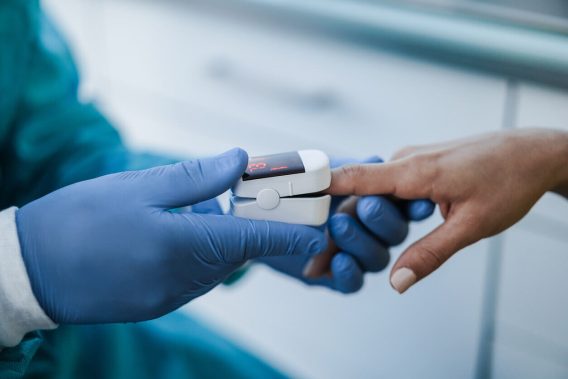Study: Severity of Sleep Apnea May Be Underestimated in Black Patients
Editors carefully fact-check all Drugwatch.com content for accuracy and quality.
Drugwatch.com has a stringent fact-checking process. It starts with our strict sourcing guidelines.
We only gather information from credible sources. This includes peer-reviewed medical journals, reputable media outlets, government reports, court records and interviews with qualified experts.

Research published during the American Thoracic Society Conference in May shows the risks of sleep apnea in Black patients may be underestimated due to differences in the way the condition is diagnosed.
Sleep apnea can cause breathing interruptions during sleep, resulting in lower oxygen levels in the body. If it isn’t treated, sleep apnea may lead to serious health issues such as Type 2 diabetes, stroke or heart problems.
Ali Azarbarzin, an assistant professor at Harvard Medical School, along with researchers from Brigham and Women’s Hospital in Boston, studied data from 1,955 patients during an overnight sleep study. According to the findings, there was “less measured desaturation” in Black patients compared to white patients, even after adjusting for other variables. The numbers were lower for both men and women.
All of the patients’ oxygen levels were measured with an oximeter, which is clipped to the fingertip. Researchers said the issue may be linked to the way an oximeter works to gather information.
“Our findings suggest that these measurement problems may lead to underestimation of the severity of OSA [obstructive sleep apnea] in Black individuals,” Azarbarzin said. “However, whether this underestimation of oxygen drops should lead to important differences in diagnosing and managing OSA in Black and other individuals with dark skin is unclear.”
Oximeter Readings Can Vary
Oxygen saturation is a key factor in diagnosing sleep apnea. Oximeters are able to find the level of oxygen saturation in a patient by the color of their blood. The device sends light through the fingertip and uses a sensor on the other side. Bright red blood is highly oxygenated, and blue or purple-colored blood is less oxygenated. If the device isn’t calibrated correctly for darker skin tones, it could deliver inaccurate readings.
The research presented at the American Thoracic Society Conference is just one of several studies proving inconsistencies concerning diagnosis and health care for the Black population. This could contribute to people of color being at an increased risk for sleep apnea.
“These findings highlight the need to rigorously test the accuracy of oximeters across diverse populations and also to consider whether factors other than the oximeter’s characteristics could explain differences in oxygen patterns with breathing pauses,” said Azarbarzin.
This recent research supports the results of another study done during the COVID-19 pandemic in 2022. While using oximeters to measure blood oxygen levels in intensive care patients, data revealed that levels could be less accurate in Black patients compared to white patients.
The U.S. Food and Drug Administration started investigating the use of oximeters and possible racial biases connected with the devices in 2022. Its Medical Devices Advisory Committee also considered adding a boxed warning on oximeters noting that readings may vary depending on the skin color of the patient.
Sleep Apnea Poses Health Risks
Sleep apnea can be diagnosed in men, women or children, but is most common in men. Left untreated, it may increase the risk of several health issues, including cancer, asthma, heart attack or heart failure, kidney problems, Type 2 diabetes, stroke or depression.
For many, CPAP therapy is the first line of treatment for sleep apnea. Studies have shown CPAP treatment improves sleep apnea symptoms and prevents other sleep apnea health risks.
“If a person was diagnosed with hypertension, they will notice their numbers normalize. They will have fewer headaches, less brain fog, better cognitive ability, less daytime sleepiness, decreased anxiety from lack of restful sleep and much more energy,” pharmacist and respiratory therapist Neisha Hacker-Finey told Drugwatch.
There are many treatments for sleep apnea, including:
- CPAP, continuous positive airway pressure machines
- BiPAP, bi-level positive airway pressure machine
- Lifestyle changes
- Oral devices
- Surgery
There have been numerous recalls and warnings associated with Philips Respironics brand sleep apnea devices due to health risks from disintegrating foam and other design flaws. Many users of the recalled devices have filed Philips CPAP lawsuits after experiencing serious health issues, including cancer.
Be aware of any sleep apnea symptoms such as morning headaches, dry mouth after waking up, insomnia, problems paying attention or concentrating, or fatigue during the day after a full night’s sleep. Discuss any CPAP symptoms or side effects with your physician.